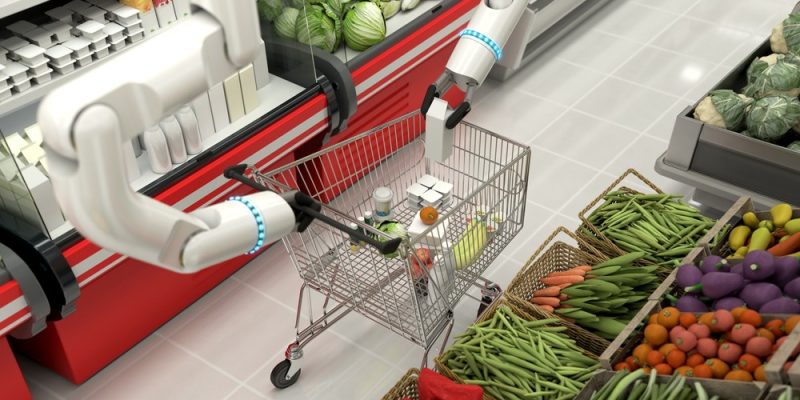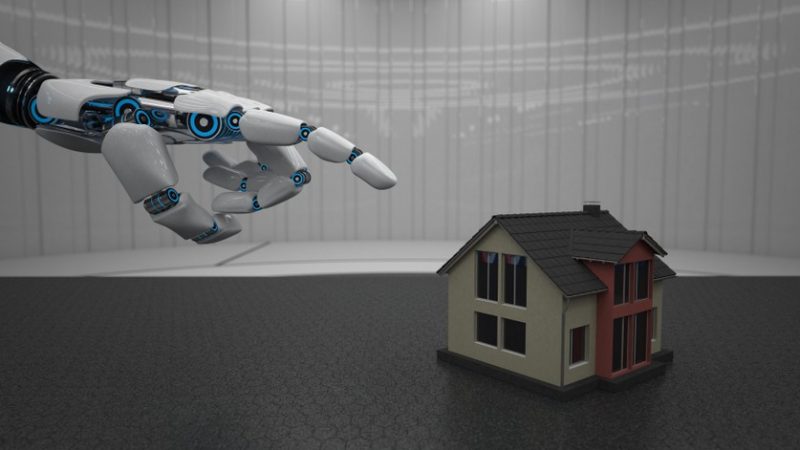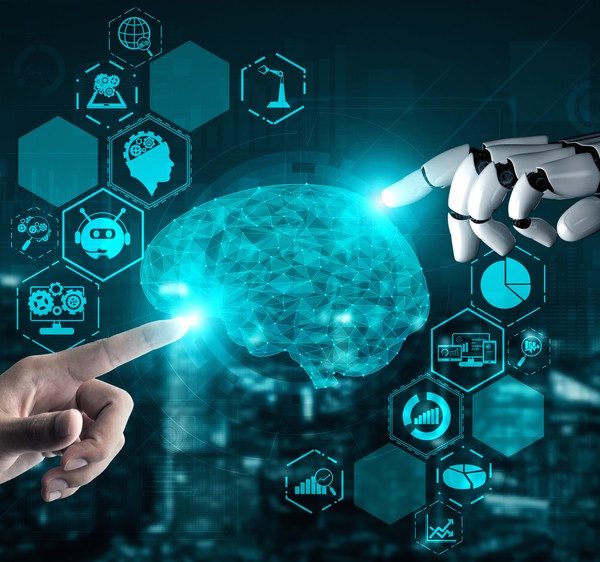
AI in Grocery Stores: How is it Used?
Are you tired of the monotonous routine of traditional grocery shopping? The integration of Artificial Intelligence (AI) in supermarkets and grocery stores can transform the way we shop for our daily essentials. With AI technology, the shopping experience can be enhanced for both customers and store owners. Let’s delve into the ways in which AI can revolutionize grocery stores and supermarkets.
AI technology enables personalized shopping experiences, allowing customers to receive customized recommendations based on their preferences and purchase history. By analyzing customer data, AI algorithms can predict their shopping patterns, interests, and needs. This data is then utilized to provide tailored recommendations, promotions, and discounts, making the shopping experience more personalized and convenient.
Read Also:
- AI in Food and Beverage Industry: Use Cases & Benefits
- AI in Food Packaging: Smart Solution for the Future
- How Does AI Impact Food Delivery?
- Revolutionizing Food Processing with Artificial Intelligence
- The Power of AI in Food Science
- How AI Helps to Prevent Food Waste
How AI Will Turn Grocery Stores Into Smart Supermarkets?
In today’s fast-paced world, customers expect a personalized shopping experience that caters to their specific needs and preferences. With the implementation of Artificial Intelligence (AI) in grocery stores, this expectation can now become a reality.
Understanding Customer Preferences
By using AI, grocery stores can gather extensive knowledge about their customers as soon as they enter the store. From food allergies to food preferences, the AI can remember every small detail about the customer. This allows for tailored suggestions of grocery items based on their preferences, or listing deals and offers for the purchase of specific items.
This level of personalized attention can leave customers feeling overwhelmed or even falling in love with the shopping experience. It’s no wonder it’s just basic human nature to want to feel remembered and catered to.
Implementing user-centric promotions based on AI-generated insights can enhance sales and market revenue for store owners. With the ability to suggest specific products to customers based on their preferences, the likelihood of a purchase increases. It’s a win-win situation for both the store owners and the customers.
In-store Navigation: Simplifying the Shopping Experience
One of the biggest struggles in grocery shopping is finding the right place to find your desired product. Customers often give up after a couple of rounds around the store, affecting the sales of grocery stores.
Implementing in-store navigation can help customers find the rack of the product they want to buy directly, without any human assistance. By simplifying the shopping experience, customers are more likely to stay in the store longer, increasing the chances of purchases. Additionally, stores can recommend products to customers and even provide their exact location, enhancing cross-selling opportunities.
Enhanced Inventory Management with AI
Inventory management is a crucial aspect of any grocery store. However, it is not always easy to keep track of the products in the store. Misplaced items, mislabeling, missing products, expiry dates, and other issues can cause chaos in the store’s inventory management.
While traditional inventory management systems can help, they do not provide insights that can help store owners make better decisions. For instance, predicting sales, identifying the best-selling and least-selling products, and optimizing the ordering process can be a daunting task.
This is where an AI-integrated inventory management system comes in. By analyzing data from various sources, an AI system can predict future sales and recommend the order quantity of products based on past sales. This can help grocery store owners optimize their inventory management processes and reduce waste.
Reducing Shoplifting with AI
Shoplifting is a major concern for grocery store owners. Traditional security systems such as cameras can only record suspicious activities, making it difficult to identify the shoplifters once they leave the store.
However, an AI-integrated system can scan and detect items in the visitors’ pockets. This can help security personnel to identify potential shoplifters with ease. The system can also be trained to differentiate between legitimate shoppers and shoplifters, reducing false alarms.
Minimizing Sweethearting in Retail Industry: Tips and Tools
Sweethearting is a serious concern in the retail industry. It’s a fraudulent activity where a store employee pretends to scan the items at the checkout for the benefit of visitors. This act can result in significant financial losses for the retailer and negatively impact the shopping experience for the customers. In this article, we will explore some tips and tools to minimize sweethearting and enhance the overall shopping experience.
Tip #1: Train Employees and Implement Strict Policies The first step in minimizing sweethearting is to educate your employees about its negative impact and enforce strict policies against it. Train your staff to scan each item carefully, verify the price, and always ask for identification before processing any transaction. You can also implement a buddy system where two employees work together to monitor each other’s actions and prevent any fraudulent activity.
Tip #2: Use AI-Integrated Cameras Integrating AI-powered cameras in your store can significantly reduce the chances of sweethearting. These cameras can detect any suspicious activity, such as scanning products while hiding the barcodes or stacking items on top of each other. The cameras can send alerts to the security team, who can take necessary actions to prevent any fraudulent activity.
Tip #3: Conduct Regular Audits are an essential tool to detect any fraudulent activity in your store. Audits can help you identify any discrepancies in your inventory, such as missing items or incorrect pricing, which can be an indication of sweethearting. You can also use software tools to automate the audit process and get real-time alerts for any suspicious activity.
Smart Billing Process to Enhance Customer Experience
Long queues at the billing counters are a common problem faced by most shoppers. It can result in frustration and negatively impact the overall shopping experience. Implementing a smart billing process can significantly reduce wait times and enhance the customer experience.
Revolutionizing the Shopping Experience with AI-Integrated Smart Carts
Shopping carts are an indispensable part of every supermarket, yet they are often overlooked. They enable shoppers to move around the store with ease and carry multiple products. However, as soon as shoppers are done with their shopping, they tend to leave their carts unattended.
With the integration of artificial intelligence (AI) technology, smart carts can enhance the shopping experience of users. AI-integrated smart carts allow shoppers to scan the product barcode using a cart scanner, which generates the bill without having to wait in long queues at the billing counters.
Conclusion
The integration of AI technology into the retail industry can bring about remarkable changes, and smart carts are just one of the many ways in which this technology can be leveraged. If you’re a grocery store owner looking to enhance your customers’ shopping experience and streamline your store operations, consider investing in AI-integrated smart carts.
























